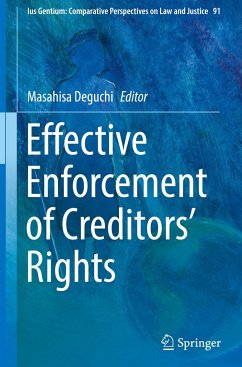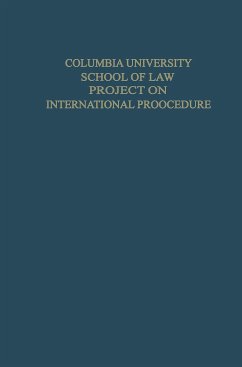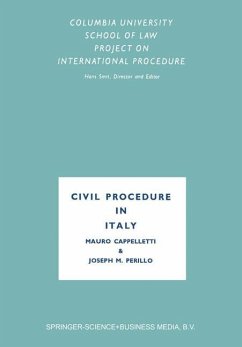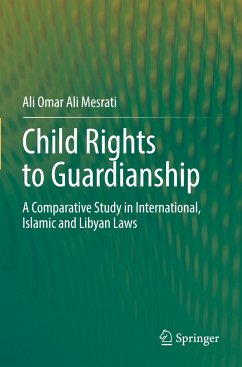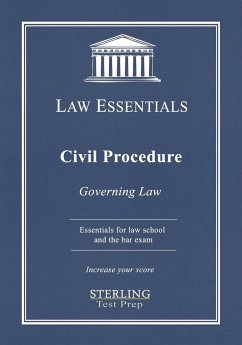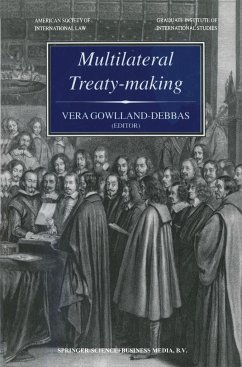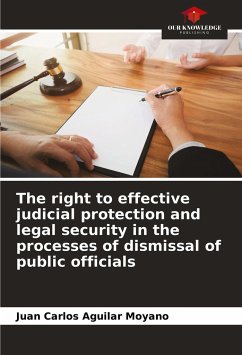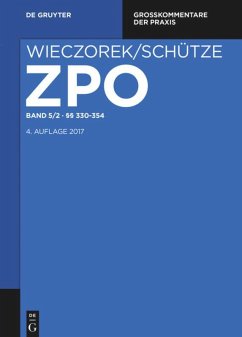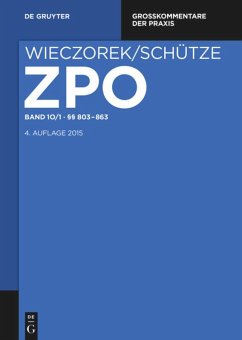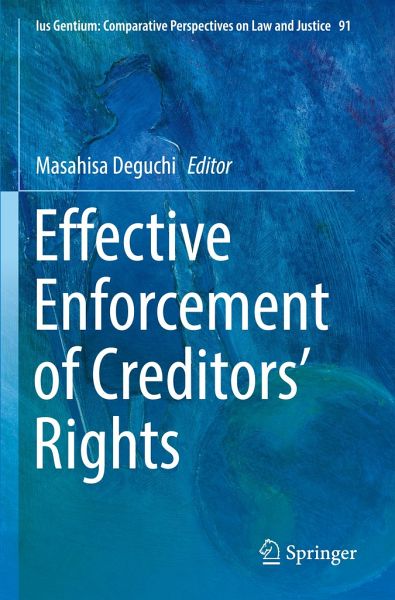
Effective Enforcement of Creditors' Rights
Versandkostenfrei!
Versandfertig in 6-10 Tagen
171,19 €
inkl. MwSt.

PAYBACK Punkte
0 °P sammeln!
The problem of enforcing a money judgment exists in every legal system in the world, but the methods and orientation vary significantly. Effective enforcement proceedings are crucial to ensure full access to justice for creditors. Complete and full knowledge of the debtors' assets is crucial to choose the appropriate enforcement measure. But each legal system must balance the creditors' rights to an efficient enforcement with the debtors' rights. The wide differences between enforcement proceedings mirror the way each society tries to find a balance between confronting rights and interests.Thi...
The problem of enforcing a money judgment exists in every legal system in the world, but the methods and orientation vary significantly. Effective enforcement proceedings are crucial to ensure full access to justice for creditors. Complete and full knowledge of the debtors' assets is crucial to choose the appropriate enforcement measure. But each legal system must balance the creditors' rights to an efficient enforcement with the debtors' rights. The wide differences between enforcement proceedings mirror the way each society tries to find a balance between confronting rights and interests.
This book explores and compares how different legal systems approach these issues with a focus on the discovery of debtors' assets, which is a common problem for enforcement and execution proceedings in almost every jurisdiction. This is the first book to compare enforcement proceedings around the world and presents a variety of information and country reports from leading experts from four continents. It represents the joint work of academic and legal authorities from Germany, Japan, Korea, France, the UK, Switzerland, Austria, Spain, Poland, Russia, Greece, North America, Taiwan, Brazil, Argentina, Chile, and the EU.
This book explores and compares how different legal systems approach these issues with a focus on the discovery of debtors' assets, which is a common problem for enforcement and execution proceedings in almost every jurisdiction. This is the first book to compare enforcement proceedings around the world and presents a variety of information and country reports from leading experts from four continents. It represents the joint work of academic and legal authorities from Germany, Japan, Korea, France, the UK, Switzerland, Austria, Spain, Poland, Russia, Greece, North America, Taiwan, Brazil, Argentina, Chile, and the EU.





